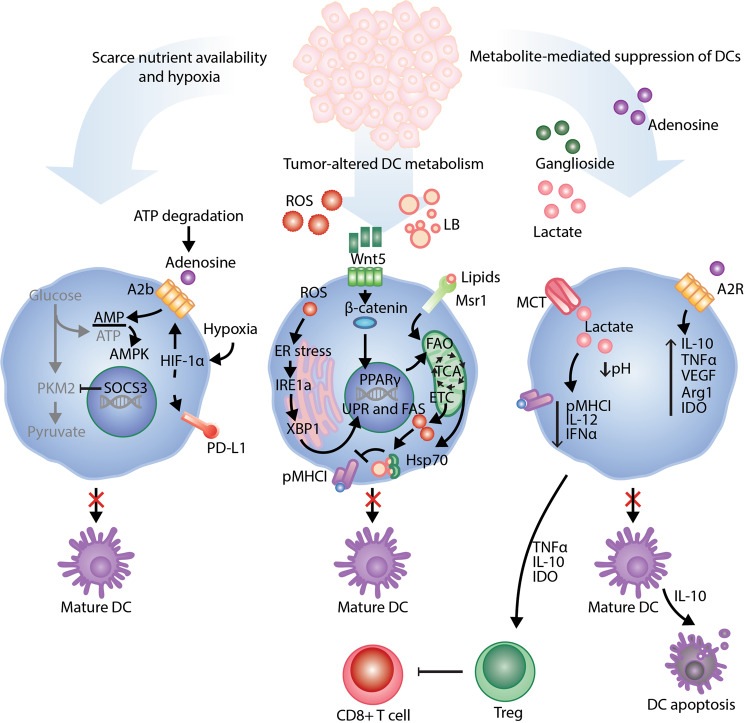Fig. 4.
Metabolic regulation of DC function within the TME. DC metabolism is tightly linked with immune function and may be dysregulated within the TME in several ways. Competition between DCs and tumor cells for limiting resources can result in a lack of nutrient support for metabolic pathways essential to DC activation and maturation. Immunosuppressive cytokines, enzymes, and lipid bodies derived from tumors and tumor-associated cells can all alter metabolic pathways that support antitumor DC function while also driving alternative pathways associated with immune tolerance, including driving the differentiation of tumor-supporting Tregs. Immunosuppressive metabolites (adenosine, lactate, gangliosides and IDO generated by tumor cells) may trigger a shift in DCs from antitumor to protumor functionality. Abbreviations in this figure not defined in the main body of the text: PKM2, pyruvate kinase M2; A2R/A2b, A2 adenosine receptor. MCT, monocarboxylate transporters

